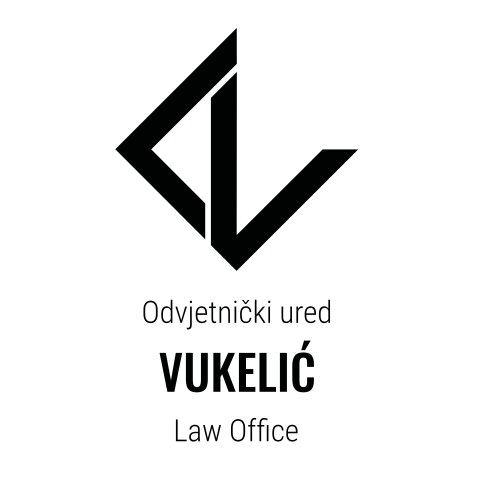Best Employment & Labor Lawyers in Croatia
Share your needs with us, get contacted by law firms.
Free. Takes 2 min.
Or refine your search by selecting a city:
List of the best lawyers in Croatia
About Employment & Labor Law in Croatia
Employment and labor law in Croatia is designed to protect the rights and obligations of both employees and employers. It encompasses a variety of issues that may arise in the workplace, from employment contracts and working conditions to termination of employment. This legal framework is based on the Croatian Employment Act and aligns with European Union labor standards, ensuring a balance between workers' rights and business interests. The Ministry of Labor and Pension System, Family and Social Policy plays a vital role in shaping and enforcing these laws.
Why You May Need a Lawyer
There are several reasons why an individual or business may seek legal assistance in employment and labor matters. Common scenarios include:
- Disputes over employment contracts, including terms of employment, pay, and working hours
- Allegations of wrongful dismissal or unfair termination
- Discrimination or harassment claims based on gender, age, religion, or other protected characteristics
- Issues related to workplace safety and compliance with occupational health and safety regulations
- Understanding and implementing staff reductions or layoffs due to economic reasons
- Assisting in negotiations with unions and employee representatives
- Interactions with labor inspectorates or facing enforcement actions
Local Laws Overview
Croatia's employment and labor laws cover a wide range of subjects. Key aspects include:
- Employment Contracts: Must be in written form and comply with minimum standards set by labor laws, including probationary periods and contract duration.
- Working Hours and Rest: Standard working time is generally 40 hours per week, with regulations around rest periods, overtime, and night shifts.
- Minimum Wage: The government sets a minimum wage, subject to periodic reviews and adjustments.
- Termination of Employment: Covers procedures for lawful dismissal, severance pay requirements, and employee protections.
- Workplace Safety: Employers must adhere to health and safety regulations to prevent workplace injuries and ensure safe working conditions.
- Discrimination and Harassment: Laws protect employees from discrimination and unfair treatment in the workplace.
Frequently Asked Questions
What is the standard probation period for new employees in Croatia?
Probationary periods in Croatia typically last a maximum of six months, during which either party can terminate the employment with proper notice.
Are employees entitled to overtime pay?
Yes, employees are entitled to overtime pay, usually at a higher rate than regular pay, as mandated by Croatian law.
How is the annual leave entitlement calculated?
Employees are entitled to a minimum of four weeks of paid annual leave. Specific entitlements may vary based on collective agreements or employment contracts.
What constitutes wrongful termination in Croatia?
Wrongful termination occurs if an employee is dismissed without just cause, proper procedure, or discrimination. Such cases can be disputed legally.
Can employers modify employment contracts unilaterally?
No, significant changes to employment contracts require mutual consent, unless otherwise stipulated by law or employment agreements.
Is it mandatory for employers to provide health insurance?
Yes, employers must register employees for state health insurance and contribute accordingly.
How can an employee file a complaint about workplace discrimination?
Complaints can be filed with the employer, labor inspectorates, or through legal action in Croatian courts.
What legal protections exist for maternity leave?
Maternity leave in Croatia is typically 14 weeks long, with protections against discrimination and job security during this period.
How are disputes with unions typically resolved?
Disputes with unions can be resolved through negotiation, mediation, or litigation, depending on the nature and complexity of the issue.
What is the role of a labor inspectorate?
Labor inspectorates ensure compliance with employment laws, handle complaints, and conduct inspections to uphold labor standards.
Additional Resources
For further assistance, consider contacting the following resources:
- Ministry of Labor and Pension System, Family and Social Policy: Provides guidelines and policy information.
- Labor Inspectorate: Can be contacted regarding workplace rights violations and inspections.
- Croatian Bar Association: Helps find qualified labor lawyers for legal advice.
- Union Organizations: Can offer support and guidance for workers involved in collective bargaining or disputes.
- Public Legal Aid Offices: Offer free or low-cost legal assistance for those who qualify.
Next Steps
If you need legal assistance in employment and labor matters, consider taking the following steps:
- Document Everything: Keep records of all relevant employment agreements, correspondence, and events.
- Consult a Lawyer: Seek professional legal counsel to understand your rights and obligations better.
- Contact Authorities: If necessary, report issues to relevant authorities such as labor inspectorates.
- Understand Your Options: Consider alternatives like mediation or arbitration before proceeding to court.
- Stay Informed: Regularly update yourself on changes to employment and labor laws in Croatia.
Lawzana helps you find the best lawyers and law firms in Croatia through a curated and pre-screened list of qualified legal professionals. Our platform offers rankings and detailed profiles of attorneys and law firms, allowing you to compare based on practice areas, including Employment & Labor, experience, and client feedback.
Each profile includes a description of the firm's areas of practice, client reviews, team members and partners, year of establishment, spoken languages, office locations, contact information, social media presence, and any published articles or resources. Most firms on our platform speak English and are experienced in both local and international legal matters.
Get a quote from top-rated law firms in Croatia — quickly, securely, and without unnecessary hassle.
Disclaimer:
The information provided on this page is for general informational purposes only and does not constitute legal advice. While we strive to ensure the accuracy and relevance of the content, legal information may change over time, and interpretations of the law can vary. You should always consult with a qualified legal professional for advice specific to your situation.
We disclaim all liability for actions taken or not taken based on the content of this page. If you believe any information is incorrect or outdated, please contact us, and we will review and update it where appropriate.
Browse employment & labor law firms by service in Croatia
Croatia Attorneys in related practice areas.
Browse employment & labor law firms by city in Croatia
Refine your search by selecting a city.

















